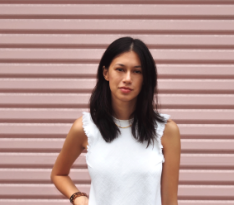Diversity needs time – just not the time you expect
 The call to advertising agency’s creative departments to become more diverse needs to start with recognition of where that diversity comes from, says guest columnist Karen Ferry.
The call to advertising agency’s creative departments to become more diverse needs to start with recognition of where that diversity comes from, says guest columnist Karen Ferry.
In the past 12 months, there’s been a lot of talk about how advertising creative departments don’t have enough diversity, especially in regards to women.
There’s been talk about quotas. Talk of training to tackle unconscious bias. Telling women to ‘lean in’, CDs to ‘be uncomfortable’. We’ve seen clickbait lists of what’s holding women back and even more lists of what women can do to solve this.
But this soft touch, this solution through discussion, doesn’t necessarily result in change. You only need to look at the case against JWT North America and their ex-global CEO Gustavo Martinez, where Martinez allegedly sexually assaulted an employee immediately after gender training, to see that lip service doesn’t necessarily pay.


Thanks for the article Karen. Whilst it’s hard to disagree with the general theme of less work and more time living the more important parts of your life, I would worry that the Law of Unintended Consequences could come into play, if staff are not allowed to access emails after 7pm. As a recruiter, I talk to loads of female staff and ‘working’ after 7pm is essential for many of them (the Mums especially), as that allows them to claw back time that is often lost with school runs and the like. (Yes, this can and does apply to some Dads in the industry as well). It’s a lovely idea – and typical of “the lazy French” – but it may not play out as initially intended. (The crack at the French is a joke BTW….. I am English and we are all emotionally repressed, according to those across the Channel !)
Agreed Karen. This brings to mind the advertising truism ‘good ideas can come from anywhere.’ Good ideas don’t just come from sitting in a cubicle (in fact they rarely do) – they come from wandering down a street, playing with kids, seeing a new film, watching people in a cafe or playground or beach. We’re so lucky to work in an industry where this is the case – and smart employers should take advantage of this. So let us work remotely. Let us work flexible hours. Let us absorb the world in order to make ads that reflect and speak to it. As a creative my brain is constantly on, chewing over problems – and believe me, it’s working harder when I’m not staring at my screen, bum in office chair, looking at Mumbrella. Face time is way less important in this industry than brain time, and it’s odd that nobody in Australia has woken up to this yet.
Great points in here, thanks for sharing Karen. I do worry about restricting times for working though, like Mark does above. Many people have to work out of hours in order to leave the office early, and/or simply because that’s when they work best. I think what’s required is flexibility — with success based on outcomes, rather than the amount of time spent at a desk.
good to read and I’m a male non-Chinese Australian
Excellent article Karen.
Mark, get your clients to supply their personal email addresses = problem solved.
Let’s not troll with weak excuses.
Advertising is the place where creative people come to die. The industry in Australia is horrible. Do what I did. Get out. Work a 9-5 and be creative in your free time.
Sorry Pugwash but I don’t understand what you are saying. And who is trolling ?
Don’t bother waiting for advertising to catch up, make a move, there are a ton of opportunities in companies and industries in Australia that allow a much better work/life balance. Large corporates are turning towards creative and design led thinking to get an edge, they’re also adopting operational learnings from some of the leading tech companies. Best thing I ever did was make the jump across, unfortunately advertising seems to be like the dinosaur, completely unaware of their looming extinction.
Great article, Karen. Beautifully articulated. As a father of a 5 year old, newly minted school kid being allowed the privilege to experience a school run or assembly once or twice would also be welcome from a male perspective too. Thanks for standing up for this very important issue. Also, sorry for the accidental concussion thing all those years ago, innit.
Thanks Karen,
for having the courage to say what most people feel
Really well articulated Karen. Thanks for the perspective and references. I think you’ve nailed it with the root of the issue being in the pressure to ‘conform’ to the industry.
Why is diversity just about gender?
We have a long way to go if we want our industry to be reflective of the society that we operate in
Nice work Karen. This is a much better angle on the issue than it just being sexist. In my 15 plus male years in advertising (including 3 years working with Karen) I have not come across sexism in the creative department. Yes a lack of females but not because of sexism.
I have also had the opportunity of 3 female creative partners.
The trend I have noticed is many females in advertising have moved to client side after having children. Being a parent really puts life into perspective and from what I gather client side hours are not as gruelling.
Maybe we should stop bowing to the unrealistic deadlines and demands.